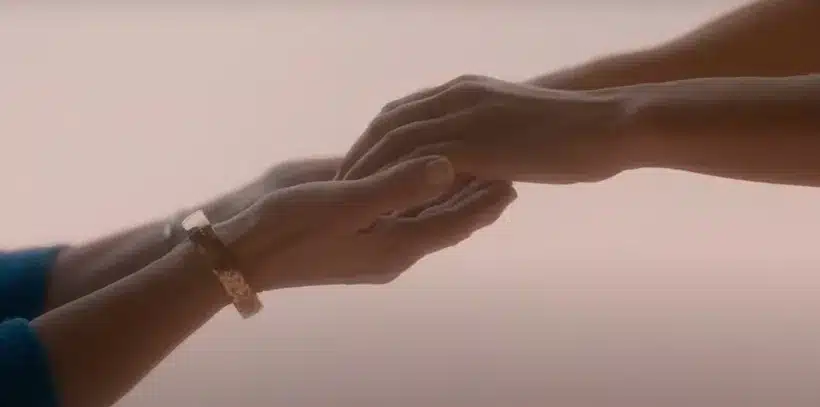
Unless you live under a rock, you’ve probably seen or at least heard about Barbie, directed by Greta Gerwig. Love it or hate it, Barbie is the highest grossing film directed solely by a woman, coming in at $1.28 billion worldwide to date. The hype was real. I could write a tome on the clever marketing machinery behind it.
Yet what surprised me was the depth of feeling I could have for an ending to a story based on an oversexualized, commercial product I rejected (on principle!) growing up.
What it means to be human, what it means to define your identity on your own terms, the existential risk of choosing a different path, the strength in the emotionality of girls and women. These surprisingly complex themes shimmer in a touching montage to the plaintive tune of Billy Eilish’s “What Was I Made For?”.
But if I may, I’d like to address a significant missed opportunity in the final act.
Mothers and Daughters
Stereotypical Barbie, played by Margot Robbie, meets with the spirit of Ruth Handler, Mattel co-founder and creator of the Barbie doll. They join hands in a hazy, pink-hued space in between Barbie Land and The Real World. Barbie asks Ruth for permission to become human.
“You don’t need my permission. I can’t control you any more than I could control my own daughter,” Handler says. “I named you after her: Barbara. And I always hoped for you, like I hoped for her.” Then, profoundly:
“We mothers stand still so our daughters can look back to see how far they have come.”
The touching thought behind this critical line on the self-sacrificing nature of motherhood was clear to me. I looked around the movie theater to see glistening eyes and noses in tissues. However, let’s expand upon this line for anyone interested in living a life of impact.
Passing the Torch
I am a mother of a daughter and a daughter of a mother. As such, but beyond that, as a human being, my resolve is to go as far as I can in my lifetime to make the world a better place for my daughter, her generation, and the generations that follow. Not to sound dramatic, but I believe it’s a moral imperative. Helping advance human, animal, and planetary health is part ode, part responsibility to the future stewards of life on this planet.
The idea of “standing still” as a form of benevolent self-sacrifice indicative of being a “good mother” for my daughter is anathema to me.
Standing still is passive. Standing still is holding back. Do I wish for my daughter to someday stand still? To sacrifice her dreams, and hold back her ambition to conform to outdated (and irrelevant) societal expectations of motherhood? Or would I inspire her to go far, brave discomfort, and blaze new paths to improve our world?
What I wish for her and other young girls, I demand of myself. The hope is that by leading by example, my life will serve as a valuable framework to use and improve upon in her own life.
This brings up my next point: leading by example is the role of anyone driven by purpose and social impact.
What We Are Made For
Regardless of age, gender, socioeconomic position, or family situation, we each have the responsibility to lead by example. The broad objective is to leave the world better than how we found it. I know of many women who are not biological mothers and are some of the greatest examples I know of strength, courage, and purpose-driven leadership. You don’t have to be a parent to feel the responsibility and the privilege of passing on the torch.
If I could rewrite the line in Barbie, it would be inclusive of those who are not biological mothers, whose relevance reaches beyond daughters of a single generation. It would be something like this:
“We go far so that our successors can go farther.”
This paints a grander, more accurate picture of how our achievements can ripple into and elevate the lives of generations after us.
The Center for Contemporary Sciences is proudly women-led and mission-driven. We’re intent on leaving the world better than how we found it. We are raising the bar as high as we can so that our successors can reach even greater heights.
We go far so those who come after us can go farther.
Do you agree? Join us on our mission to advance the health and well-being of humans, animals, and our planet.
JOIN OUR MISSION
Photo Credit: Warner Bros

